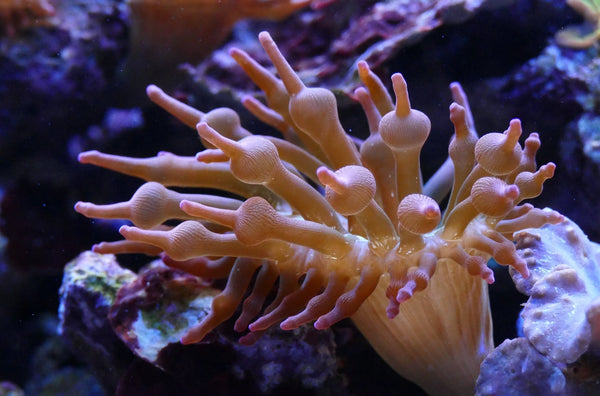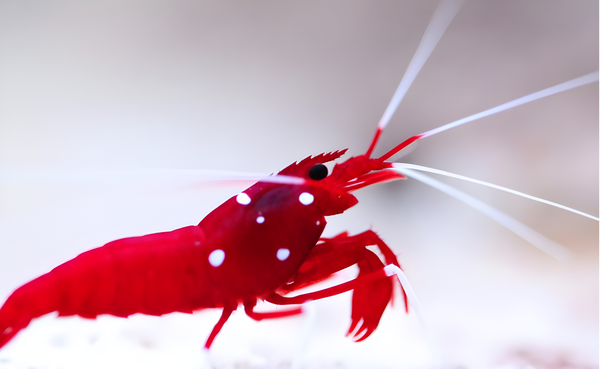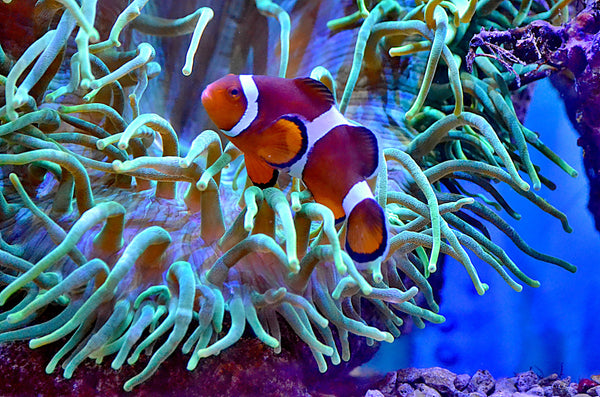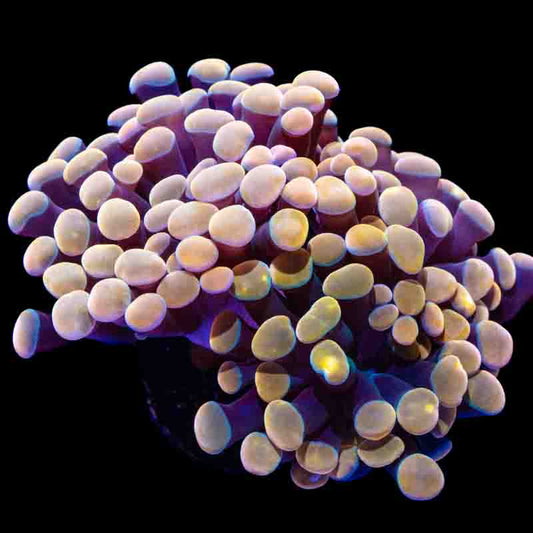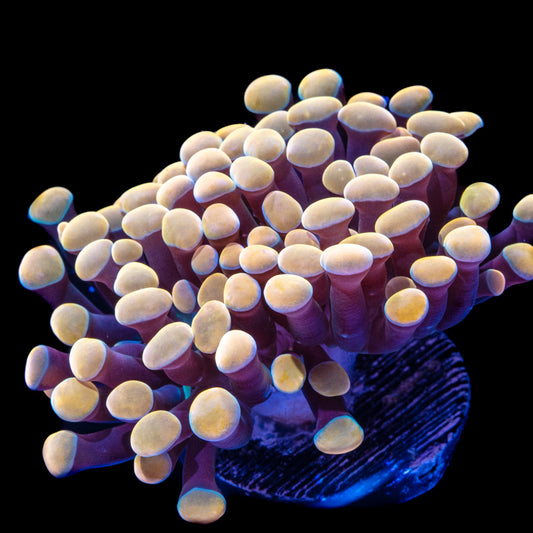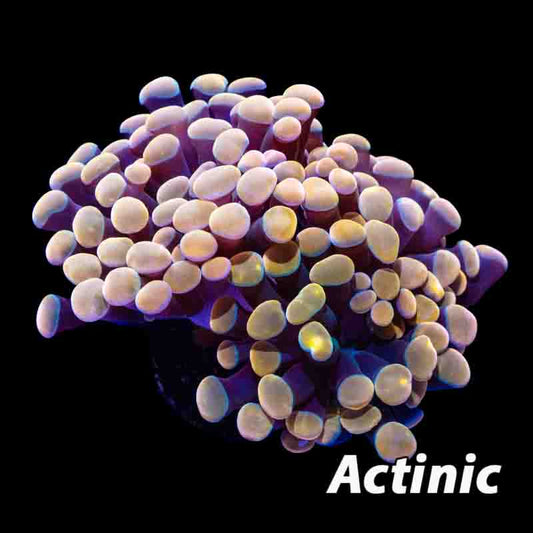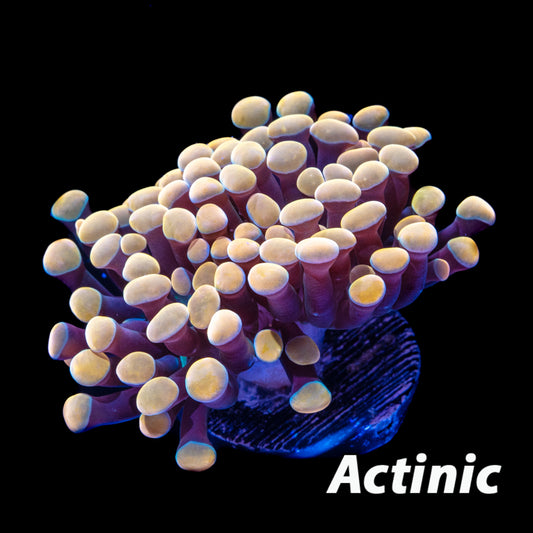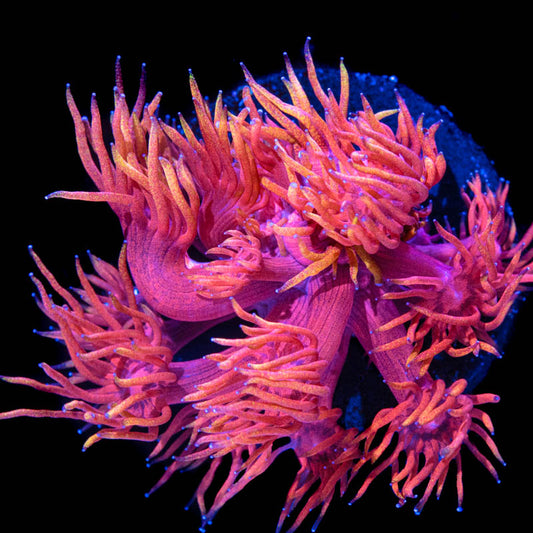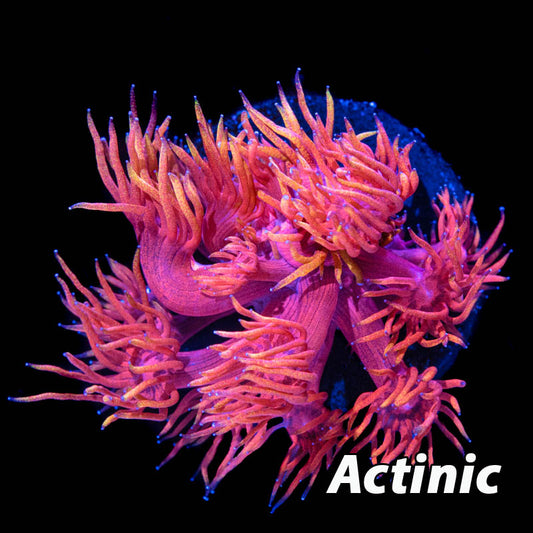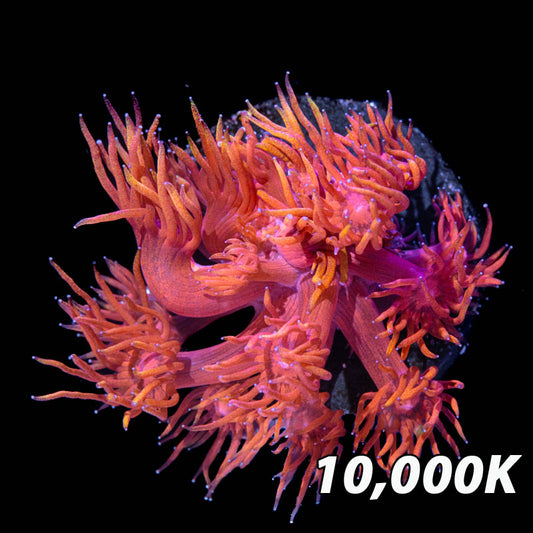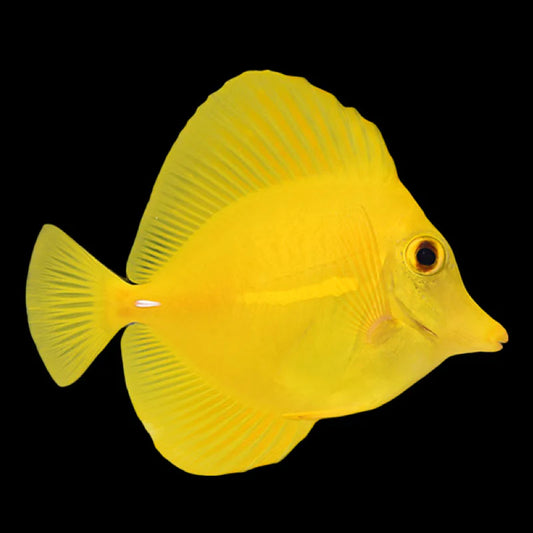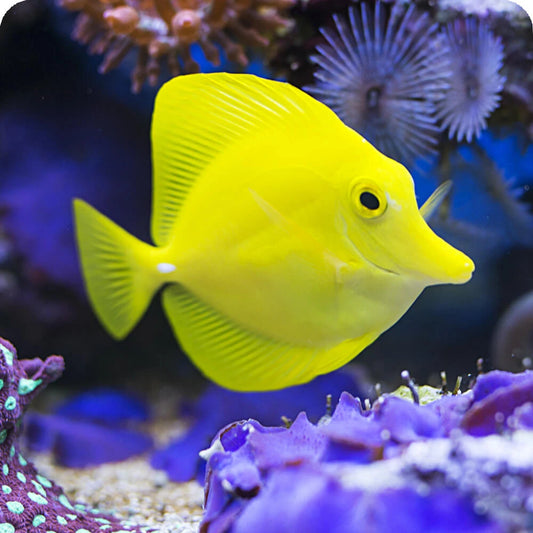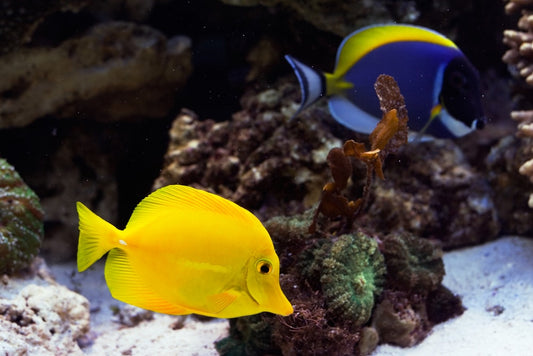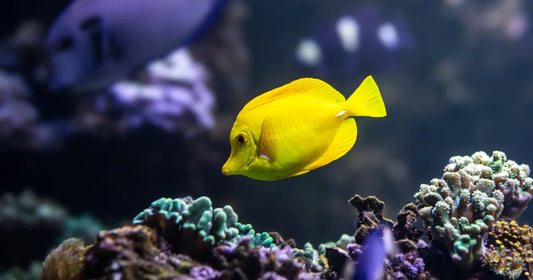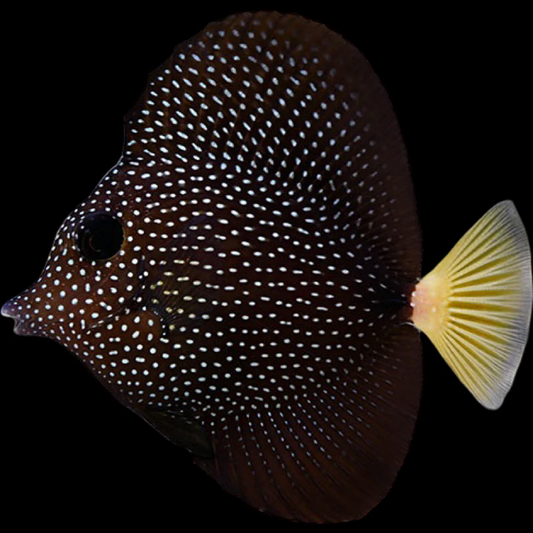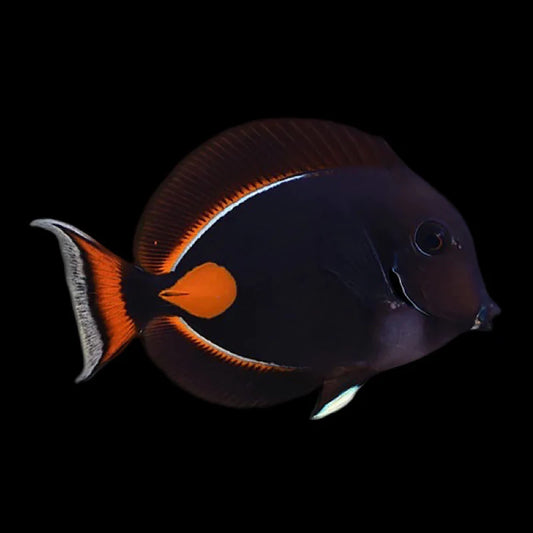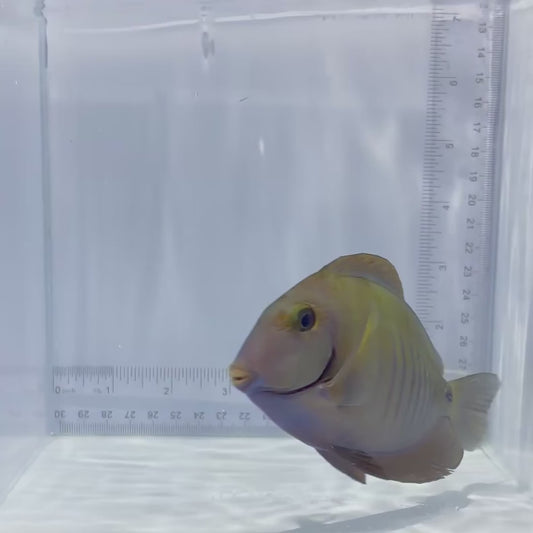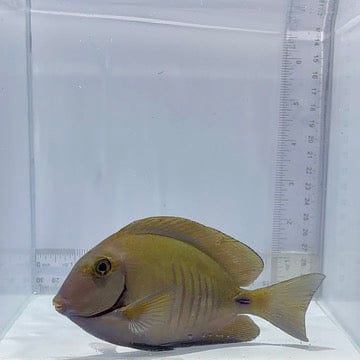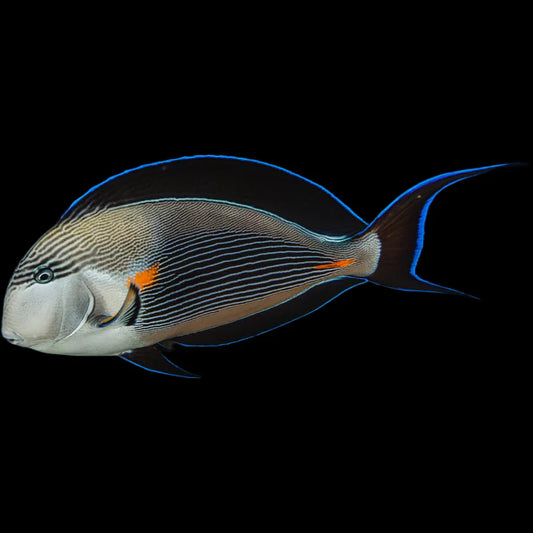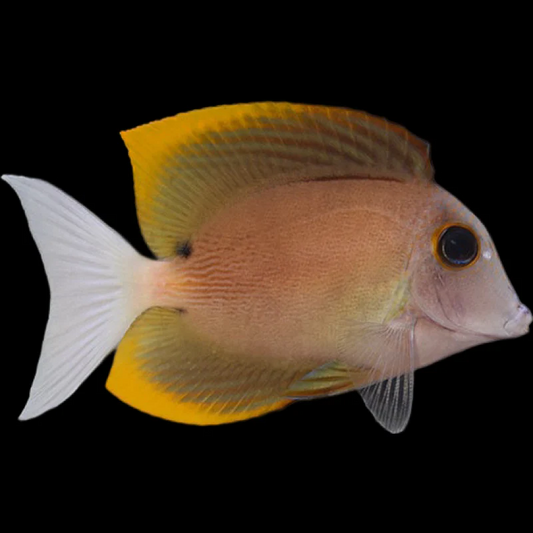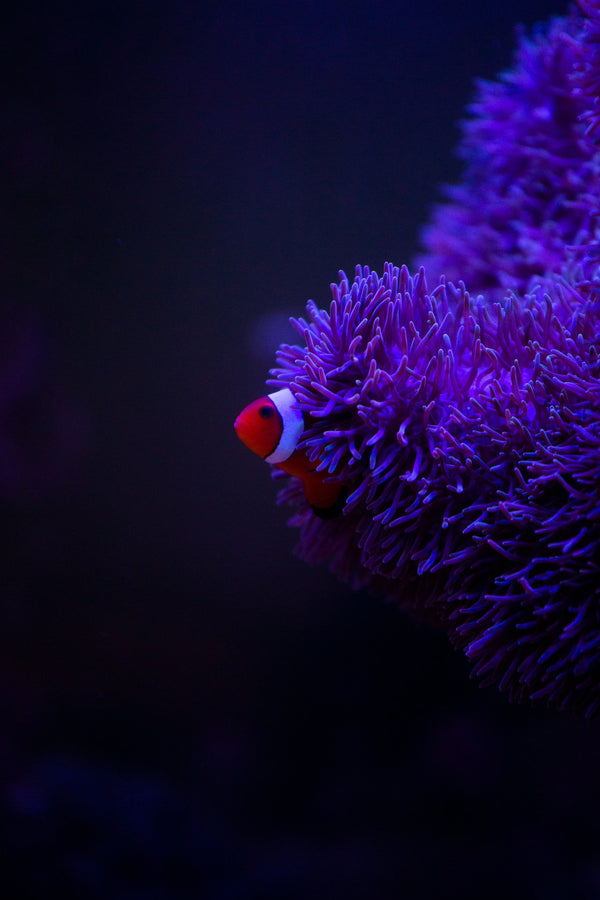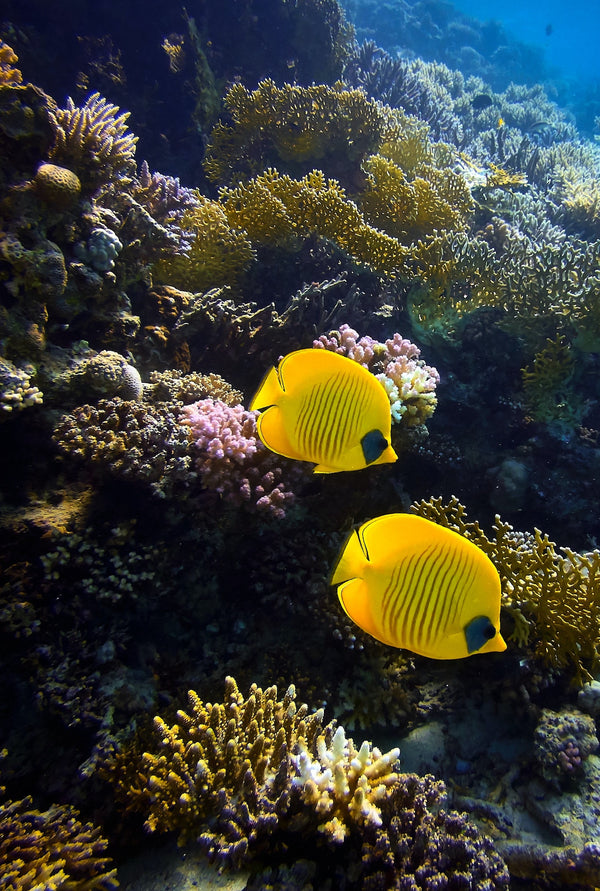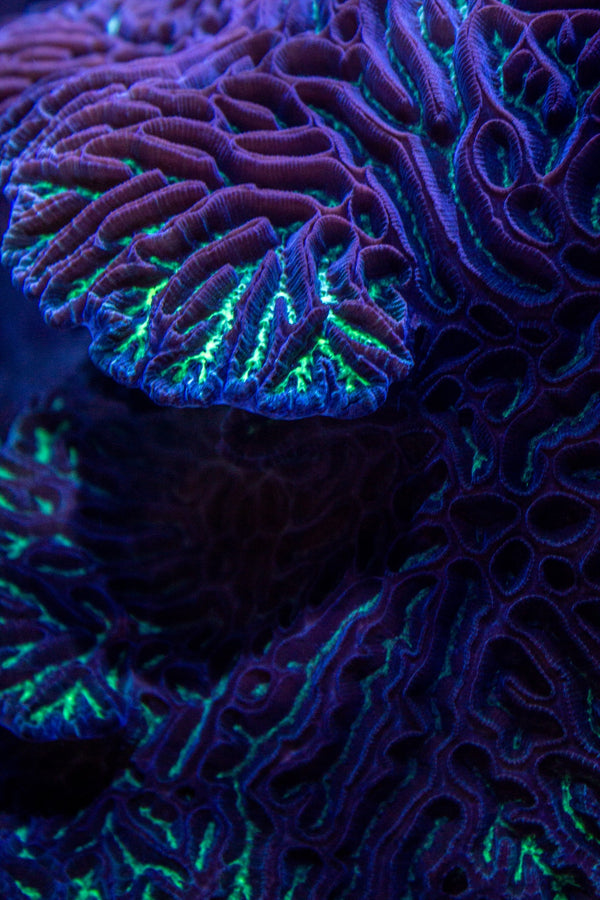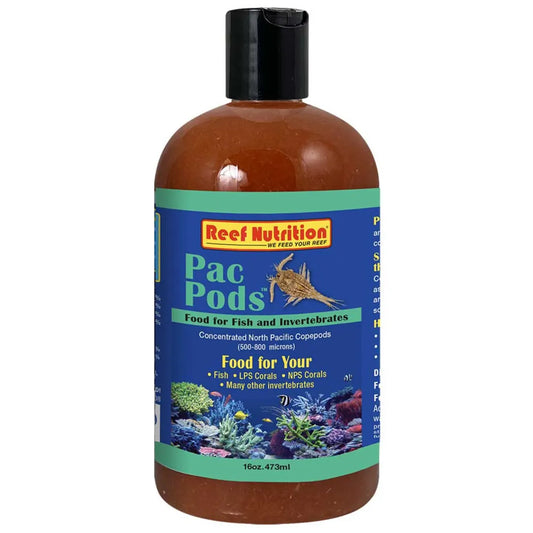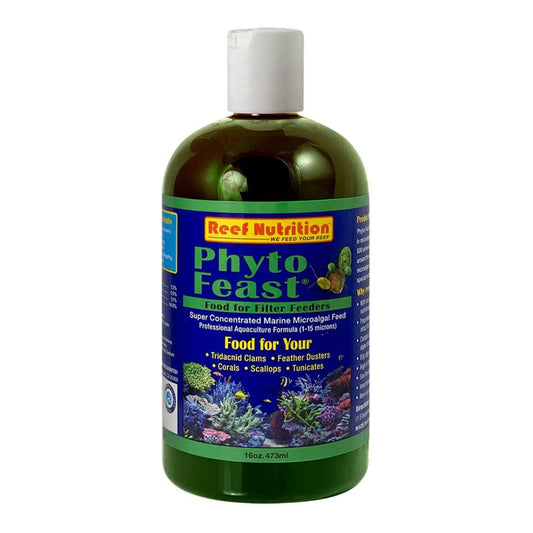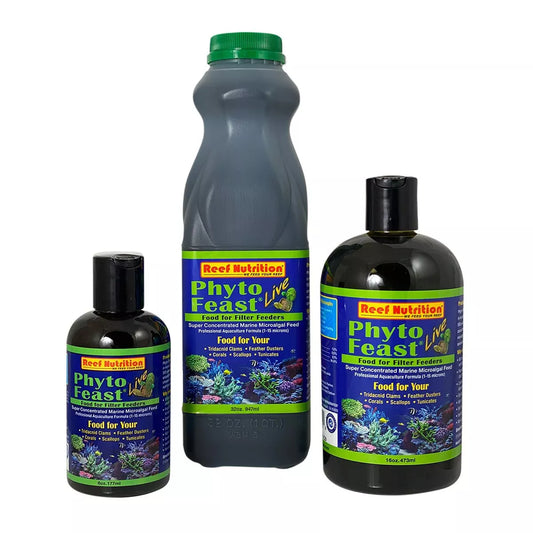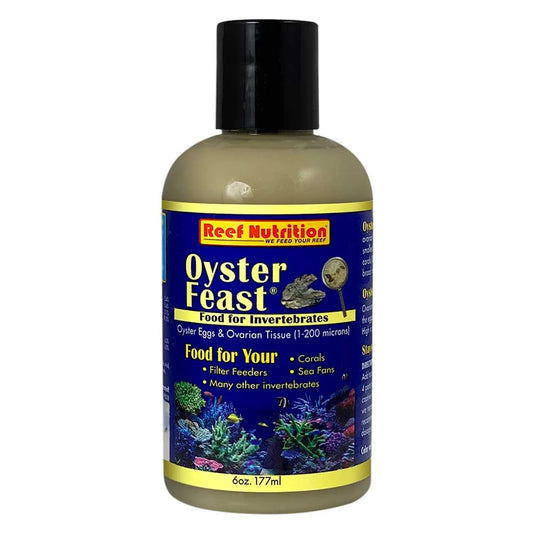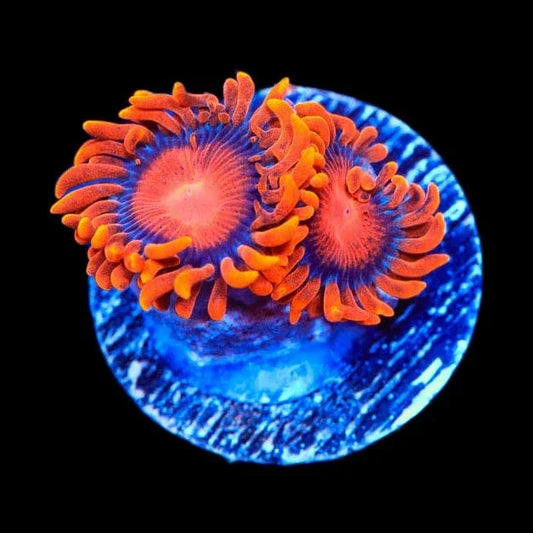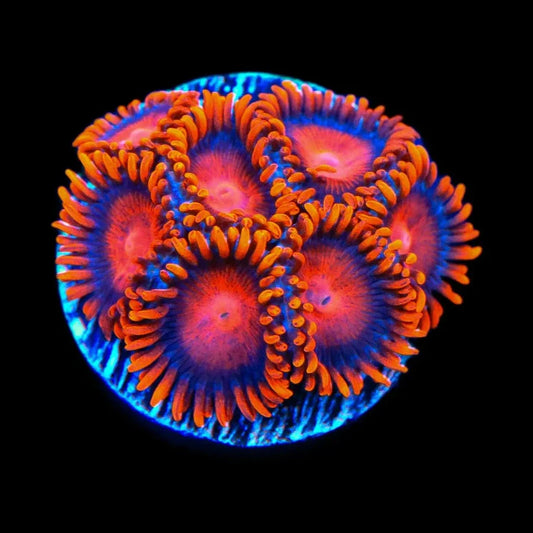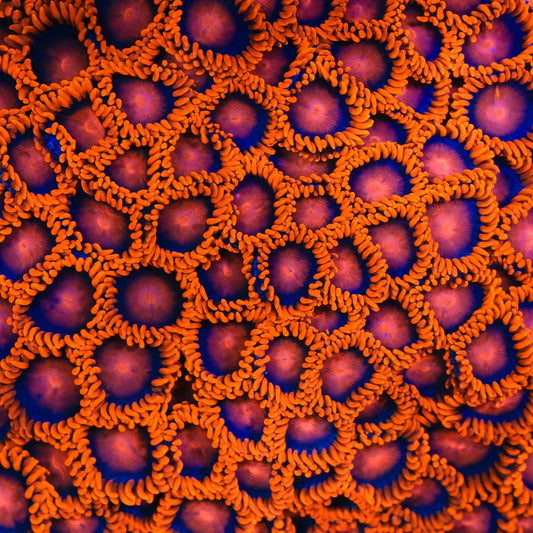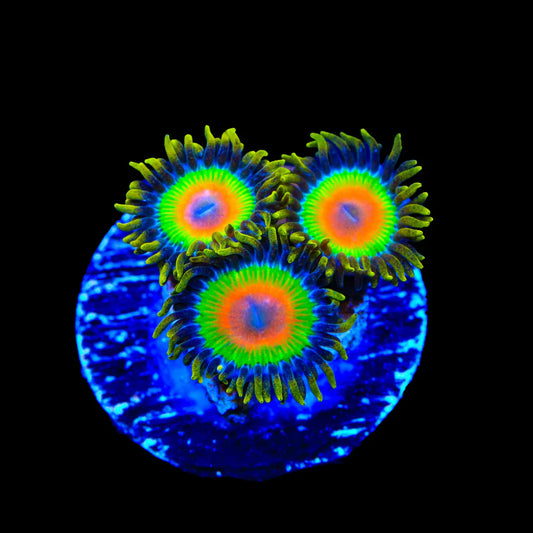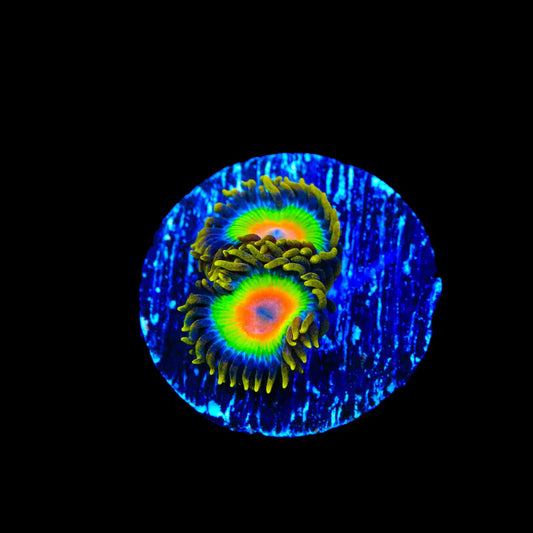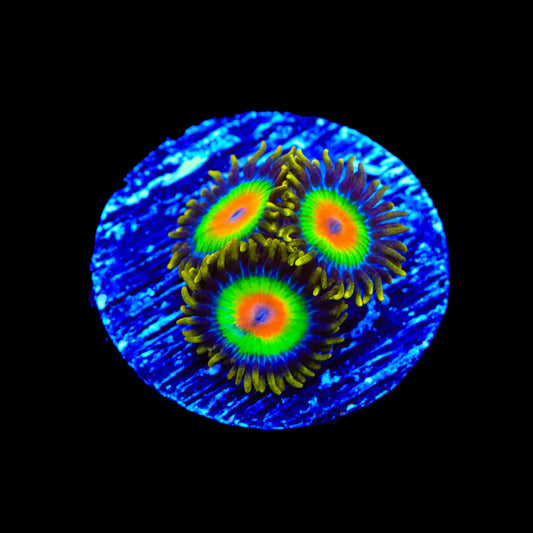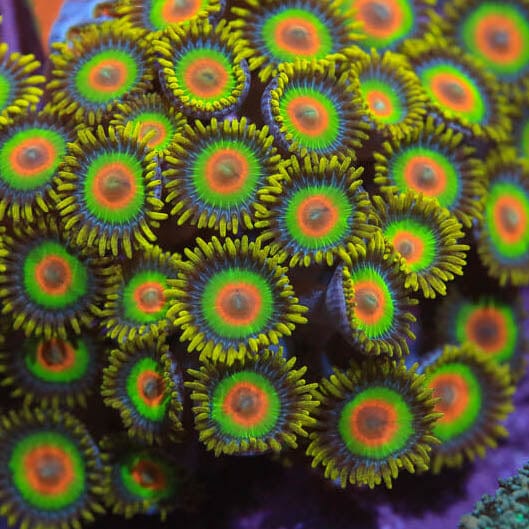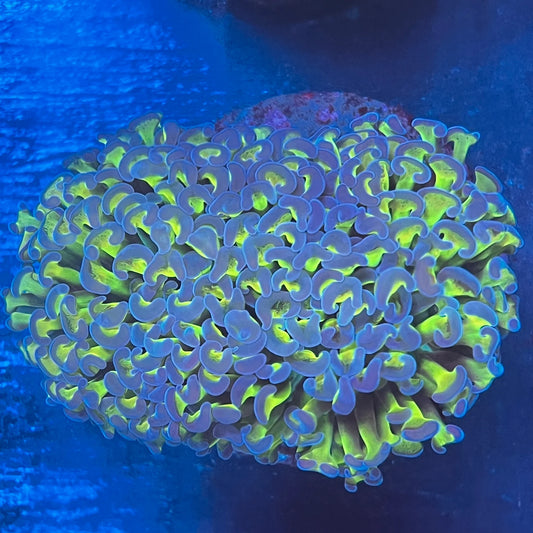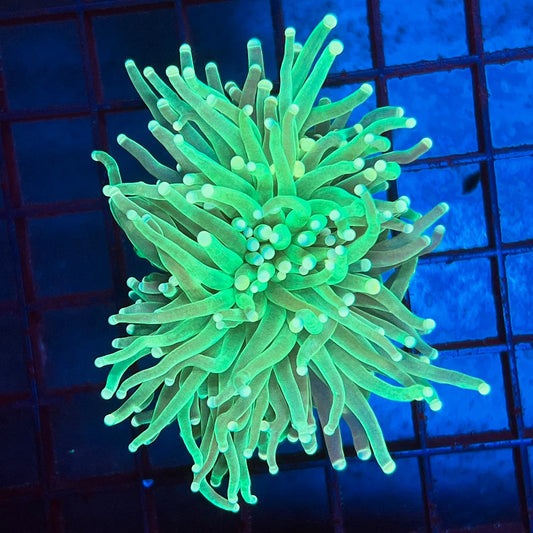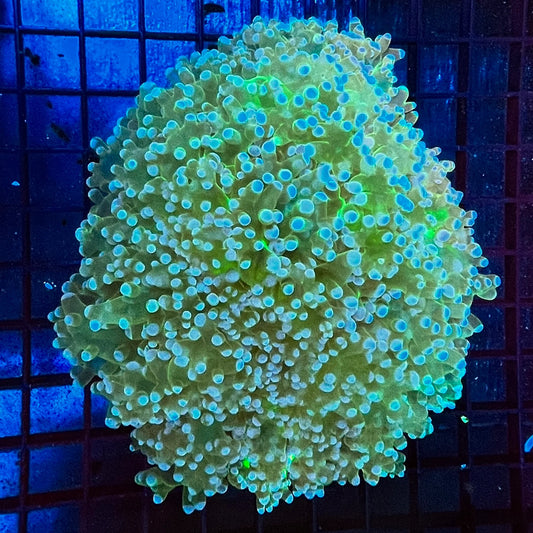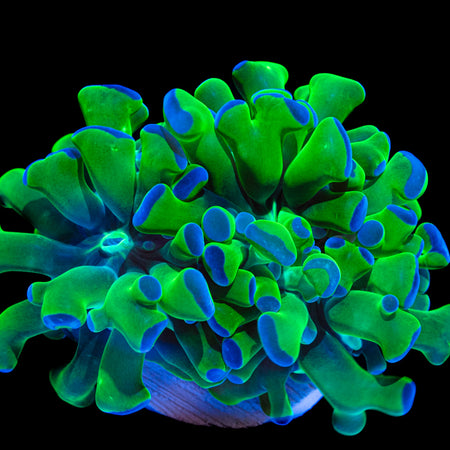- Home
- All Products
- Aussie Purple Tip Hammer
Aussie Purple Tip Hammer
Aussie Purple Tip Hammer
Couldn't load pickup availability
Coppertone Branching Hammer
Diablo Goniopora
This unique Aussie hammer has a bright orange body. Under certain lighting conditions it may also develop purple highlights. Frags of this hammer coral will be 1 head.
Description
Description
HAMMER CARE
Hammer corals are an iconic large polyp stony coral (LPS) that has been a staple in the hobby for generations. They are found all throughout the Pacific reefs and come in a variety of colors and growth forms. Hammer corals sometimes grow in a wall formation while other hammers grow in a branching formation. Either variety makes an excellent show piece coral for a reef aquarium however the branching varieties tend to grow more quickly.
Size & Care Requirements
Size & Care Requirements
LIGHTING
Hammers, Torches, and Frogspawn (Euphyllia sp.) do not require as much light as some other corals. It can be kept under normal output fluorescents without much difficulty. In some cases, Hammers may extend more readily under subdued lighting, however it may display more attractive colors when placed under stronger lighting.
Low Light
Low light translates to about 30-50 PAR
Medium Light
Medium Light is between 50-150 PAR
High Light
High Light is anything over 150 PAR
WATER FLOW
Moderate to strong water movement is recommended. One of the main draws to this type of LPS coral is how it sways in the current. Water flow is both healthy for the Hammer and is pleasing aesthetically.
FEEDING
Like most coral, Euphyllia rely to a large extent on the products of their zooxanthellae, however, in our experience, they also benefit from direct feeding. Hammers, torches, and frogspawn do not seem to aggressively feed like other LPS, so finding the right food can be a challenge.
WATER CHEMISTRY
Hammer corals require consistent levels of calcium, alkalinity, and to a lesser degree magnesium in order to grow their calcium carbonate skeletons. The amount of supplementation needed to maintain calcium, alkalinity, and magnesium depends a lot on the size and growth rate of the stony corals in your tank. Higher densities of stony corals consume these compounds at a faster rate than sparsely populated aquariums.
There are many ways to successfully manage calcium, alkalinity, and magnesium levels in the home aquarium. In the video below, I cover three different aquariums that utilize different techniques to manage their chemistry.
Agonizing over these levels might be mental overkill for hammer corals, but it is good to periodically test just to make sure everything is in the ballpark of natural sea water levels. A couple parameters worth paying closer attention to is nitrate and phosphate. LPS corals are sensitive to declining water quality and elevated levels of nitrate and phosphate are an indicator of declining water quality. Low nitrate levels around 5-10ppm are actually welcome for large polyp stony corals, but around 30-40ppm of nitrate you might start running into some issues such as tissue recession. In extreme cases, you might see a torch coral go through full-fledged polyp bailout which we will cover later in this article.
PROPAGATION
Hammer corals for the most part has been propagated extensively in captivity and is an excellent candidate for aquaculture. One possible issue preventing wide-scale commercial aquaculture is the fact that hammer corals do not grow very fast compared to other stony corals. The branching varieties tend to be much better candidates compared to the wall varieties. Hopefullyt a sustainable harvest can be achieved in time.
There is however a much less common method which is polyp bailout. Polyp bailout is a stress response to unfavorable tank conditions that certain stony corals can activate as a last ditch effort to save themselves. During polyp bailout, polyps are killing off their own connective tissue through apoptosis. For those that are unfamiliar with the term, apoptosis is programmed cell death as opposed to necrosis which is traumatic cell death. Apoptosis is a highly regulated and controlled process so the coral polyps bailing out due to stress are doing so in a direct calculated response to an exogenous threat
HAMMER AGGRESION
Corals developed all kinds of adaptations to gain a competitive advantage in the battle for real estate on the reef. In our home aquariums we have to be conscious of these in order to create the best environment for them long term. Euphyllia are one of the corals that extends long sweeper tentacles. Sweeper tentacles are often used as a means of defense against other encroaching coral colonies. Their white tips contain a concentration of nematcysts that can damage more delicate tank mates. Most of the time, this is not a major problem but to be safe, we recommend placing it in a location far from other corals initially.
Additional Info
Additional Info
LOCATION
Hammer corals are found all over the tropical waters of the Pacific. In particular, they are regularly harvested from the islands of the Indo-Pacific including Fiji, Tonga, Solomon Islands, and the Great Barrier Reef.
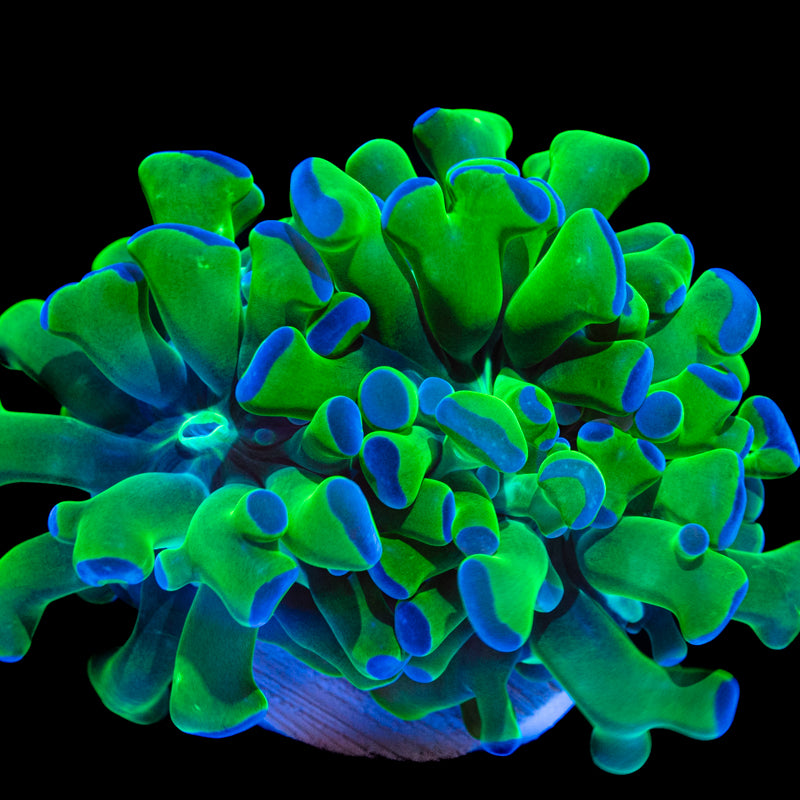
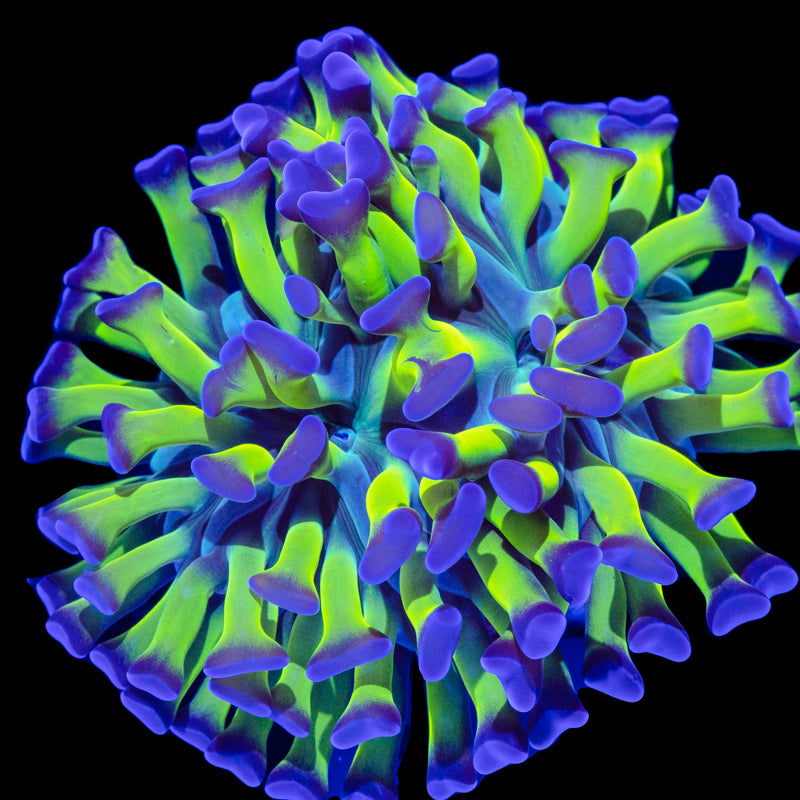
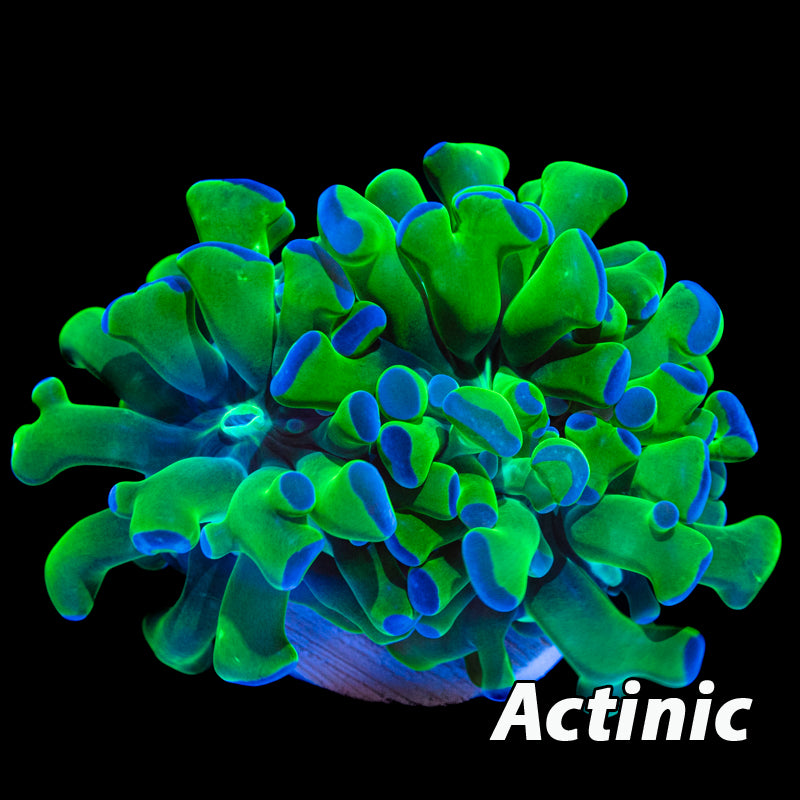
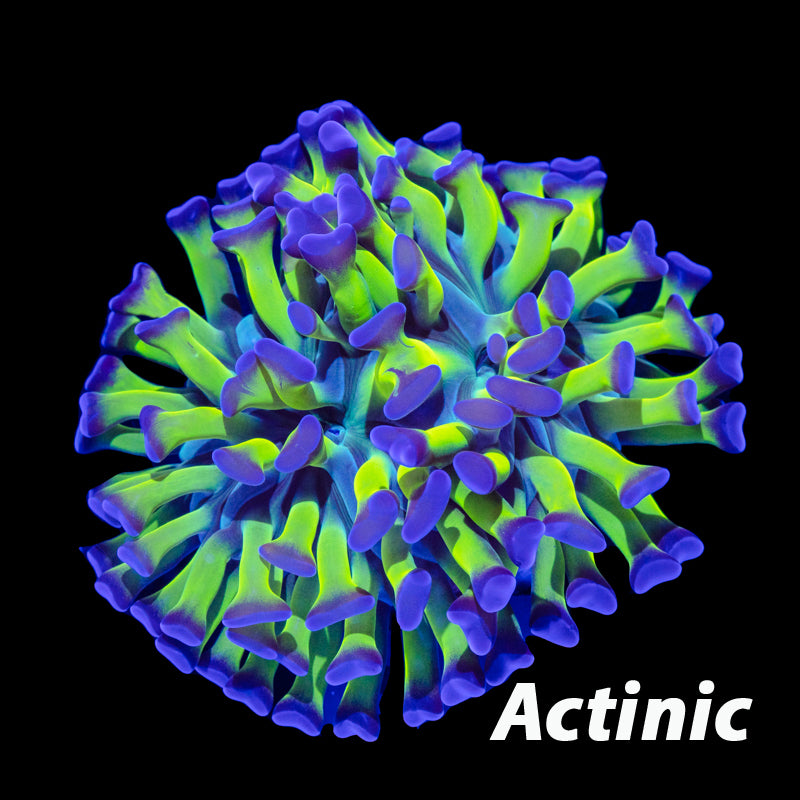
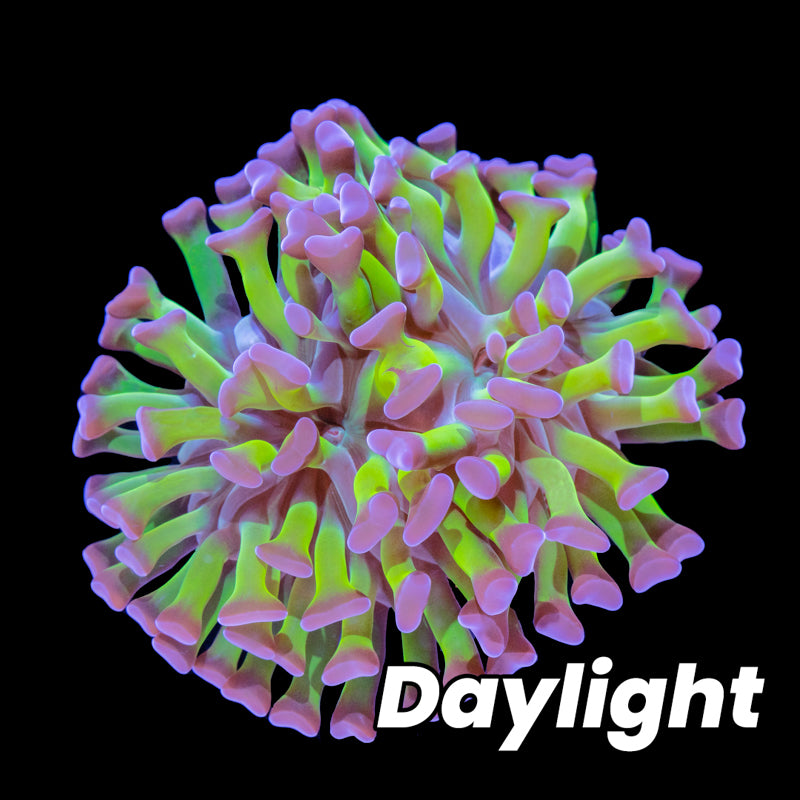
Most Popular
-
Hawaii Yellow Tang
Regular price $399.99Regular priceUnit price / per -
Achilles Tang
Regular price $449.99Regular priceUnit price / per -
Atlantic Doctor Tang Fish
Regular price $349.99Regular priceUnit price / per -
Sohal Tang
Regular price $749.99Regular priceUnit price / per -
Tomini Tang
Regular price $129.99Regular priceUnit price / per
Stock Up On Popular Dry Goods
-
Pac Pods Copepod Concentrate (16 oz)
Regular price $58.24Regular priceUnit price / per -
Red Sea Reef Foundation C Magnesium (Mg) Supplement, 1000ml - Maintains Magnesium Balance for Healthy Corals in Marine & Reef Aquariums
Regular price $34.00Regular priceUnit price / per -
Red Sea Reef Foundation B Alkalinity (KH) Supplement, 5 L - Boosts Carbonate Levels for Strong Coral Skeletons in Reef & Marine Aquariums
Regular price $129.00Regular priceUnit price / per -
Red Sea Reef Energy Plus 500ml (AB+) All in One Coral Food for Saltwater Aquarium Marine Reef Tanks | Food for Soft, LPS, SPS, and Non-Photosynthetic Corals
Regular price $39.00Regular priceUnit price / per -
Phyto-Feast Live, 16 oz Bottle
Regular price $44.99Regular priceUnit price / per -
Oyster Feast Egg & Tissue Mix (6 oz) – Reef Nutrition
Regular price $36.62Regular priceUnit price / per
You May Also Like
-
Bam Bam Zoanthids Coral
Regular price $92.99Regular priceUnit price / per -
Rasta Zoanthids Coral
Regular price $84.99Regular priceUnit price / per -
Wall Hammer
Regular price $129.99Regular priceUnit price / per$109.99Sale price $129.99 -
Green Torch
Regular price $125.99Regular priceUnit price / per$129.99Sale price $125.99Sale -
Frog Spawn Colony
Regular price $279.99Regular priceUnit price / per$349.99Sale price $279.99Sale -
Diablo Goniopora
Regular price $200.00Regular priceUnit price / per
